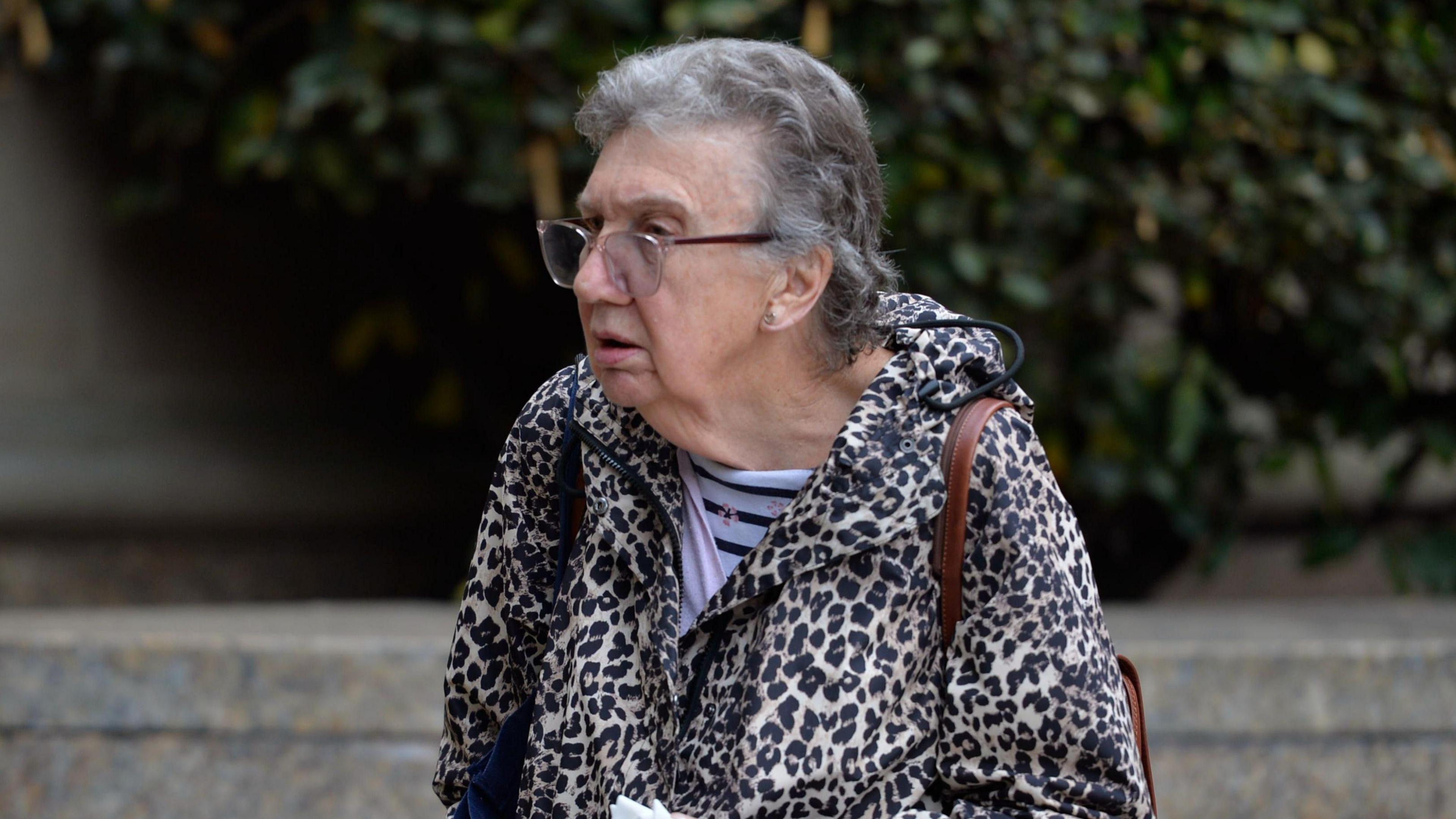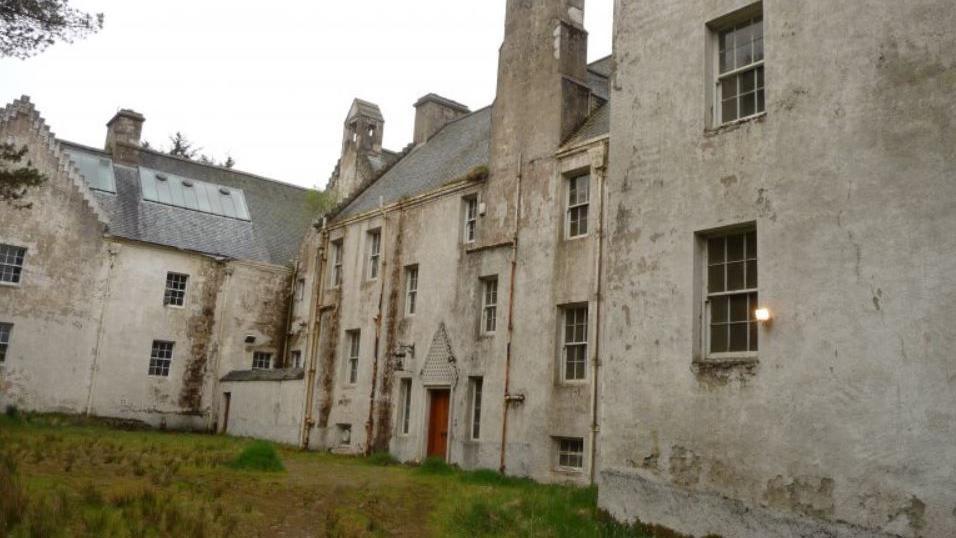Retired teacher convicted of abusing pupils

Patricia Robertson, 77, taught at Fornethy House in Angus
- Published
A retired teacher has been convicted of the historical abuse of 18 girls at a former residential school.
Patricia Robertson, 77, assaulted and humiliated youngsters during her time at Fornethy House in Angus. The charges spanned 15 years between 1969 and 1984.
Robertson denied the accusations during a trial at the High Court in Glasgow but was convicted of a total of 18 charges of cruel and unnatural treatment of the youngsters.
Sentence was deferred on the first offender until December. The judge, Lord Colbeck, granted her bail.
The court heard Robertson's victims had been sent to the residential school for "short-term respite" from their homes.
The teacher force fed, assaulted and humiliated the girls.
One survivor told jurors: "I just wanted to curl up like a wee baby.
"I still do not understand how an adult could be like that."
Robertson accepted that she used a "strong voice" when sometimes dealing with the girls, but insisted she was not violent and had not bullied them.
Shaken 'like a rag doll'
Fornethy was run by two former local authorities, Glasgow Corporation and Strathclyde Regional Council.
It closed in 1993 and the building has been empty ever since.
It was said to offer "convalescent care" for girls aged between five and 12 for up to eight weeks at a time.
The trial heard testimony from a number of former residents about the regime there.
One of the victims recalled being force-fed semolina, which she had been struggling to swallow.
The witness said: "I remember Robertson was over at the other table and she came over to me shouting and bawling. She was saying: 'You need to eat. It is good for you'.
"The next minute, I got my hair pulled back and the spoon was put down my throat. She just would not let go."
The woman said she was then made to stand in a corner of the room facing away from others.
She remembers this sort of incident would "happen to everyone".
The victim also said she was assaulted during a later stay at Fornethy while helping to scrub floors.
She was pulled back and forward "like a rag doll" before ending up on the floor on her knees.
The woman recalled: "I just wanted my mum." She said she was beaten for "trying to do a good job".

The former school has lain derelict since the 1990s
Another survivor described the atmosphere at Fornethy as "scary, cold, unloved".
She added: "You would be able to write letters (for family), but only what they dictated and you had to copy that."
The woman said she was "scared" to report any incidents at the time.
Many other girls suffered similar ordeals.
Robertson targeted one youngster who was slapped, punched and had a blackboard duster hurled at her.
Another child was put over Robertson's knee and slapped on her bare buttocks.
Robertson, now of Essex, gave evidence during the trial and denied all the claims.
A large group of women affected by the abuse at Fornethy were in court for the verdict.
There were shouts of "Yes" as the guilty verdicts were read out.
Robertson will be sentenced at the High Court in Glasgow in December.
Conviction a 'watershed moment'
Thompsons Solicitors, the law firm which represents 218 people who say they were affected by the events at Fornethy House, welcomed the news of Robertson's conviction.
Partner Laura Connor said it was a "watershed moment" for their clients.
"We have heard them in court and also heard of the positive impact their testimony had on other survivors," she said.
"Today's conviction is a crucial milestone in a long fight for truth and accountability.
"Our clients have spoken of their happiness and relief at finally being heard, and believed."
- Published13 January
